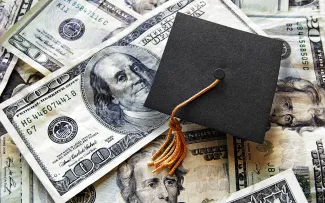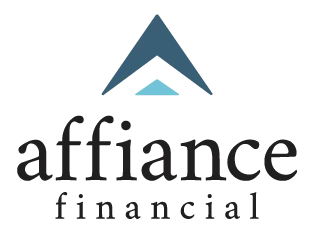
Student Loan Repayment Pause: Four comprehensive financial planning tips for borrowers to make the most of the pause.
By Brendan Halleron, CFP®, AIF®, BFA™
Student loan repayment and student loan forgiveness - two topics that have been up in the air for some time. We are still waiting for a final decision to be made regarding student debt relief, which will determine when loan payments will start again. However, it appears likely that the time is drawing near – likely this summer. So, what should you do with that money in the meantime? Partner and Financial Planner Brendan Halleron, CFP®, AIF®, BFA™, shares four comprehensive financial planning tips for borrowers to make the most of this time.
1. Establish a cash emergency reserve.
A major benefit of the payment pause is that it is giving borrowers a chance to get their financial house in order. Our first recommendation is almost always to establish a cash emergency reserve. Generally, we recommend having three months’ worth of living expenses in a high-yield savings account for life’s unexpected expenses (e.g. job loss, car repair, health emergency, etc.). Keep your emergency reserve at a separate institution than your checking account. This will help create a barrier from accessing the money for non-emergency situations. And, it could potentially earn more interest than in a standard savings account.
2. Pay off any other high-interest debt.
Before payments resume, consider your other financial obligations, such as a car payment or credit card debt, and make a plan to attack them. The additional money that you have available by not making student loan payments will, in all likelihood, disappear when payments resume. If you have any lingering high-interest debt, take full advantage of this opportunity to pay that off. That will put you in a much better position to be able to work toward additional financial goals, such as saving for retirement or a down payment for a house, even after student loan payments have resumed.
3. Consider continuing to make payments on your student loans.
Once you have a cash emergency reserve established, it may be prudent for you to continue to make student loan payments even during the payment pause. At some point, payments will resume. If you get used to spending your temporary extra cash flow during the payment pause, such as on additional meals out or a fancy gym membership, it may be hard for you to cut back when you need that cash to make payments on your student loans. This is known as ‘lifestyle creep,’ an elevation of your standard of living, and if based on a temporary increase in cash, can be detrimental to your financial future. So, if you have financial stability in other areas, continuing to make payments is probably a good decision.
But, whether to continue making payments or not is highly dependent on your personal situation – please discuss with your financial planning professional how student loan payments best fit into your comprehensive financial plan.
4. Investing while your payments are paused may seem savvy, but use caution.
If your financial house is in order, it may seem like a savvy move to invest your extra cash flow. But, investing comes with risk: the risk that the investment may have losses. While it is possible that an investment could earn a rate of return higher than the student loan interest rate, it is not a guarantee. If you plan to take the risk and invest anyway, investing in something like a taxable brokerage account may be a better choice than adding to your retirement account. That way, if it turns out you need that extra cash back when payments are turned back on you could access the funds without the penalties and taxes associated with trying to access retirement investments before retirement age. At the end of the day, you are still earning a rate of return on your loan payment: the interest rate you forgo by paying down the loan.
No one knows exactly when a decision regarding the fate of student debt relief will be made, or when student loan payments will begin again. I hope the tips shared here will help you make the most of the student loan repayment pause while you still can. Please remember, everyone’s situation is different. It is important to work with a trusted partner, that can help guide you through comprehensive financial planning decisions. If you have questions regarding your personal student loan situation, don’t hesitate to reach out to your Affiance Financial advisor.
Please share this article with anyone you know who would benefit from professional advice about their student loan situation.
There can be no assurance that the content made reference to directly or indirectly in this blog post will be suitable for your individual situation, or prove successful. Due to various factors, including changing conditions and/or applicable laws, the content is only reflective of current opinions or positions and is subject to change at any time and without notice. Moreover, you should not assume that any information contained in this blog post serves as the receipt of, or as a substitute for, personalized investment advice from Affiance Financial. Please remember to contact Affiance Financial if there are any changes in your personal/financial situation or investment objectives.





